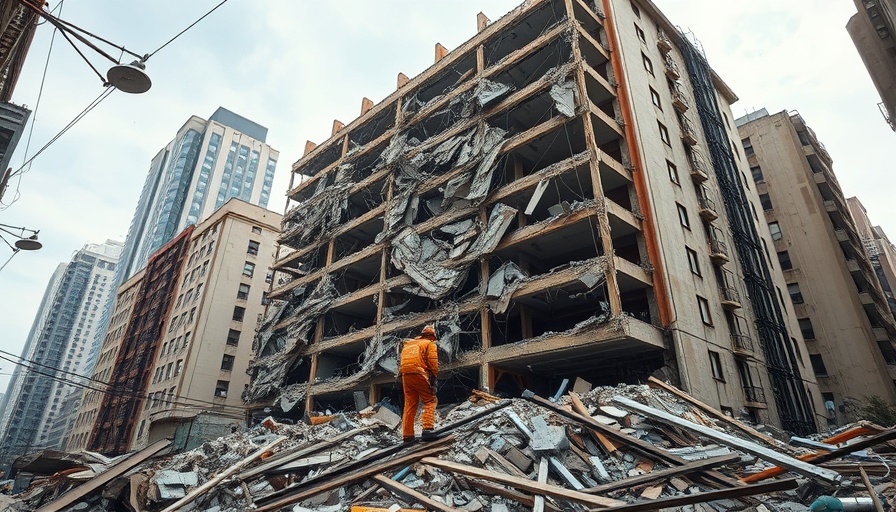
Escalating Tensions: A Dangerous Cycle
This week has seen a worrying spike in violence as Israel and Iran have traded attacks for a third consecutive day. The death toll continues to rise, reflecting the deteriorating security situation in the region. Key cities are being targeted, leading to increased fears among civilians and showing little sign of de-escalation. As geostrategic strengths and weaknesses are contested, the urgent question becomes: can peace be restored, or are we witnessing the start of a more extensive conflict?
The Human Cost of Conflict
As the casualties mount, it's crucial to remember that behind every statistic is a story, a family, a community. Reports indicate that many of those impacted are innocent civilians caught in the crossfire. Hospitals are overwhelmed, and aid organizations face daunting challenges in reaching those in need. This human element reminds us of the plight faced daily by individuals who do not seek war but find themselves living in its shadow.
The Role of International Dynamics
The ongoing situation in the Middle East is not just a regional issue; it holds global implications. Countries worldwide are watching closely, weighing their options, and considering how their interests align with either side. As policy shifts occur, the broader consequences for global markets and safety cannot be overlooked. Understanding the international landscape helps contextualize the urgency of the situation.
Local Responses and Resilience
In communities far from the conflict zones, such as those in Houston and other Texas cities, the reverberations are felt too. Local leaders and organizations are stepping up to foster dialogues about peace and understanding. Grassroots initiatives are crucial in building connections and promoting a sense of community, even in challenging times. Citizens are encouraged to engage in conversations about global peace and share personal stories of resilience.
Finding Hope in Adversity
Amidst the fear and uncertainty, there are glimmers of hope emerging from communities as they rally together. Individuals are banding together, forming support networks, and advocating for peace. Local events highlighting cultural exchanges can strengthen bonds and foster dialogue, providing a counter-narrative to the conflict-ridden discussions. These acts of unity remind us of the inherent strength found in human connection.
The Path Forward: What Can Be Done?
As we confront the challenges posed by escalating violence, everyone has a role to play. Educating oneself about these complex issues is vital, as is advocating for peaceful solutions. Community forums, local events, and discussions can empower residents to take action and speak out against violence, promoting a message of peace that transcends borders.
Conclusion
The ongoing attacks between Israel and Iran highlight a critical moment in history. The rising death toll and the human impact cannot be ignored. By fostering local dialogues, communities can work towards a better understanding of these global issues and contribute to broader efforts for peace. Let's come together to share stories, advocate for change, and create a culture of empathy and compassion right where we live.
 Add Row
Add Row  Add
Add 




Write A Comment